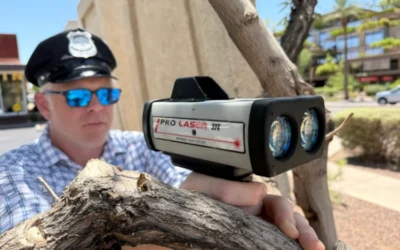Pleas In Arizona: Not Guilty, Guilty, & No Contest
There are three possible pleas in a criminal defense case: Not Guilty, Guilty, and No Contest that can be entered at your arraignment.
Not Guilty Plea
A plea of “Not Guilty” means that the defendant denies guilt, and will require that the prosecutor prove the criminal charges at trial beyond a reasonable doubt. If you enter a plea of “Not Guilty,” a pretrial conference will be scheduled. If you plead “Not Guilty”, you must decide whether to hire a private attorney that you pay, represent yourself, or apply for a public attorney (public defender) to be appointed to your case which may still cost you some money. If you choose to represent yourself, the rules of procedure will apply to you just as they would apply to a lawyer. You will be presumed to know trial procedure, and the laws that apply to your case.
Guilty Plea
By a plea of “Guilty”, you admit that you committed the act charged in the complaint(s), that the act is prohibited by law, and that you have no legal defense for your act. If you were involved in an incident where someone was injured at the time of the alleged offense, your plea of “Guilty” could be used later in a civil suit for damages as an admission by you that you were at fault or were the party responsible for the injury.
There are other consequences that go along with a plea of guilty. If you are not a citizen of the United States, a conviction may result in deportation or removal and may prohibit you from getting legal status in the future. If you are convicted of a domestic violence offense, you will be prohibited from owning or possessing a firearm or ammunition under federal law. If you need a fingerprint clearance card for you job, a domestic violence conviction may affect that clearance. If you have a professional license, any criminal conviction may have an affect on that license. Finally, if you are a school teacher (including a charter school teacher) a conviction under Arizona’s criminal code (Title 13) will be reported to the Arizona Department of Education.
No Contest Plea
Plea of No Contest: A plea of “No Contest” means that you do not wish to contest the State’s charge against you. Upon a plea of “No Contest”, the Judge will enter a judgment of guilt. It is the functional equivalent of entering a guilty plea.
Why might a defendant enter a no-contest plea over a guilty plea? A guilty plea is an admission by the defendant that they committed the alleged crime. A no contest plea is not admitting to the crime, but just says the defendant does not want to contest the charge. This could matter if the defendant is facing a civil suit arising out of the same circumstances. A guilty plea could be used in the civil case to establish liability whereas a no contest plea could not. This is not an issue in most traffic cases, because most traffic cases are victimless crimes.
Why might a defendant plead guilty instead of no contest? We see two situations most commonly. One, if the defendant desires to enter into a plea agreement which offers a better outcome than they might face at trial, the plea agreement is going to require a guilty plea. Two, if the defendant wants to enter into some sort of diversion program or deferred prosecution, it may require the entry of a guilty plea .
While deciding on a plea may be one of the most important decisions in your case, in nearly all cases you cannot harm your case by entering a “not guilty” plea. In fact, if you cannot or will not choose a plea, the court will enter a not guilty plea for you.
Have questions about a plea?
Email us below and we’ll reach out.
Latest Blog Posts
Understanding LIDAR Speeding Tickets in Arizona
Understanding LIDAR Speeding Tickets In Arizona You may have found this page because you just got a speeding ticket and the officer used LIDAR to measure your speed. LIDAR is a common tool in traffic enforcement in Arizona and it is often...
Why Misdemeanor Traffic Lawyers Beat General Criminal Defense Lawyers
Why Misdemeanor Traffic Lawyers Beat General Criminal Defense Lawyers A speeding ticket at 96 mph in Arizona isn’t just a slap on the wrist—it’s a criminal misdemeanor under Arizona law. But here’s the catch: general criminal defense...



